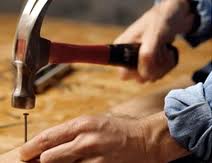.
Serial home sellers buy houses, live in them for at least 2 years, and then sell them and pay no federal capital gains tax. The key to making a serial home seller business work is to find houses that you can add value to. How do they do this?
They buy houses below market value that need repair
We now know, if we didn’t know it before, that prices don’t continue to rise every year at 5%. In fact, it appears that house prices may continue to drop for several years into the future.
So, that means that we have to add value to the house. We must find houses in need of repair and bring them back to their former glory, to force the value of the house to go up.
I know, you’re saying, “But Terry, your answer to everything it to buy a fix-up house. You have been promoting that forever. That’s the name of your blog, and your book, and probably your dog.”
My response is, how did you find out the name of my dog?
Actually, my response is that this is not merely an improbable coincidence, but it actually is the way to make the system work. You must find the right house in need of repair to buy before you can expect to make any money when you sell.
Key Advantages of Fixer-upper Houses
The three great advantages of buying fix-up houses are:
1.) You buy them for much less than you would pay for
a normal house, so you spend less of your investment money to get in;
2.) Because the price is less, monthly mortgage payments are also lower than if you had bought a traditional house;
3.) After the repairs are completed, the house automatically increases in value, and is valued the same as other houses in the neighborhood. This is a faster and more certain way to add value, rather than having to wait for housing prices to appreciate.
Learn to Make Repairs
Another key to making the serial home buyer/seller approach work is to make your own house repairs, as far a possible, instead of paying someone else to do it.
Never miss an opportunity to do your own repair work. Think of it as part of your educational process. You lose two ways when you hire someone to do your work. First, you lose the chance of a free education, and second you lose the money that you would have saved by doing it yourself. It may take you four hours to change an electrical receptacle or fix a toilet that won’t flush, something a professional could do in minutes. Don’t be concerned, in the long run you have learned a skill to be used for the rest of your life.
To learn more about making repairs, read “So You Want to Learn the Zen of Making House Repairs” that I posted at Amazon.com.
Where you find these properties in need of repair? Tune in to the next blog installment.
Serial Home Buyer/Seller Tax Exemption, Part 5 – sources of fix-up houses

 Subscribe in a reader
Subscribe in a reader
Share this: del.icio.us | Digg | Ma.gnolia | Reddit | Stumble Upon |








